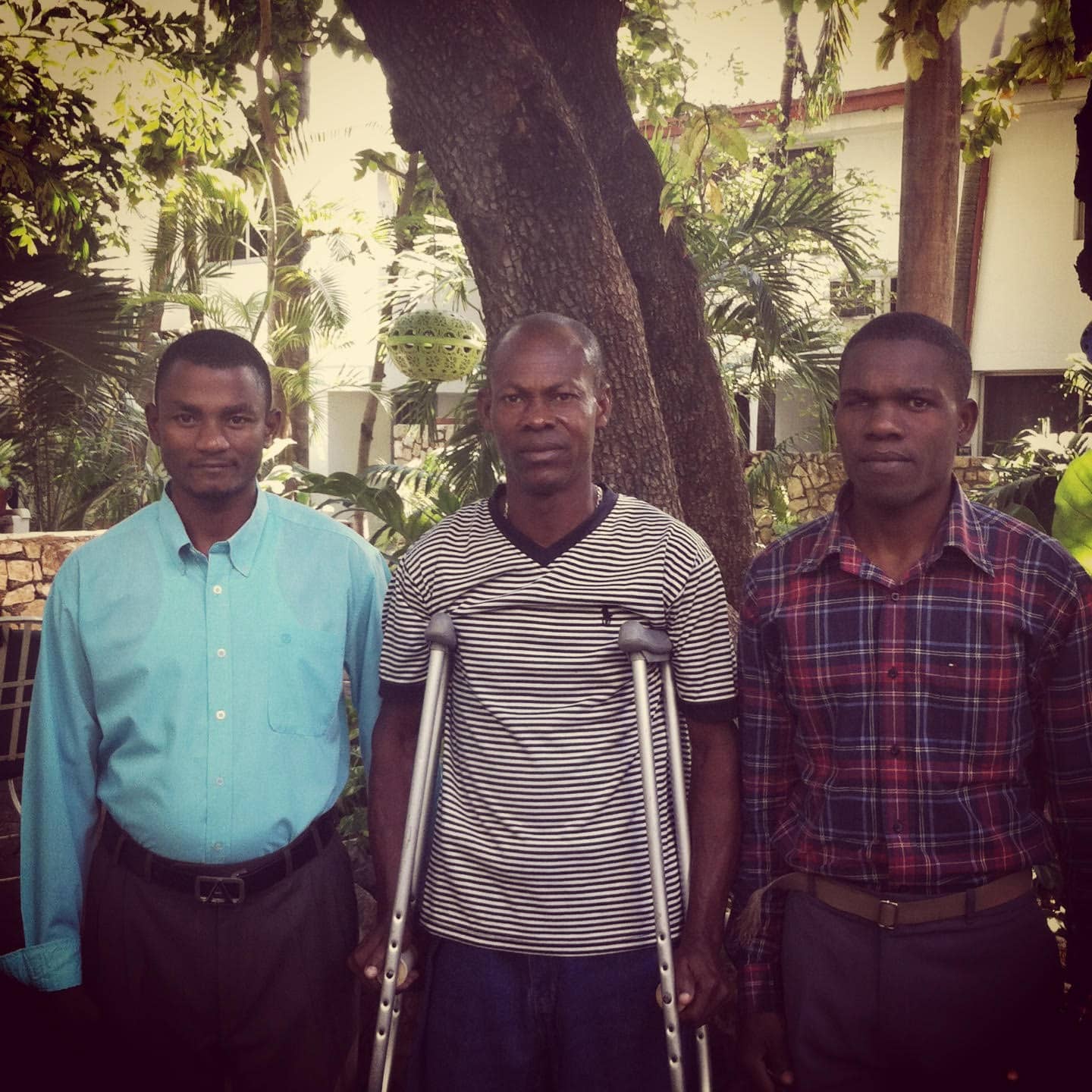Boston Jury Awards $15.5 Million in a Transnational Human Rights Case
April 11, 2023

The plaintiffs, with permission of
Center for Justice and Accountability
Last month we reported on a sensible decision by Judge Allison D. Burroughs of the District of Massachusetts rejecting a defendant’s vague invocations of international comity as a basis for abstention. That decision cleared the way for trial on the plaintiffs’ claims that the defendant, Jean Morose Viliena, targeted them and their families for extrajudicial killings and violent suppression while he was mayor of their town in Haiti. On March 21, 2023, a Boston jury returned a verdict for the plaintiffs, awarding them $15.5 million in compensatory and punitive damages. The next day, the U.S. Attorney charged Viliena with visa fraud for making false statements when he applied for permanent residence in the United States (specifically, for representing that he had not ordered, carried out or materially assisted in extrajudicial and political killings or other acts of violence against the Haitian people).
The jury verdict in Boniface v. Viliena is a welcome victory for human rights plaintiffs in U.S. courts. Despite the Supreme Court’s significant curtailment of the Alien Tort Statute, its limitations on personal jurisdiction over foreign defendants, and its revitalization of the presumption against extraterritoriality as a means for limiting the reach of U.S. statutes, some transnational human rights claims will still reach juries.
In Boniface, several factors helped the plaintiffs overcome the many legal hurdles facing transnational human rights plaintiffs in U.S. courts today. First, they had the assistance of excellent counsel: the Center for Justice and Accountability represented them in U.S. court, with the help of pro-bono co-counsel from Dentons US LLP and Morrison & Foerster LLP. Second, Viliena had become a legal permanent resident of the United States, which made it easy to establish personal jurisdiction over him. This development also created a nexus between the case and the U.S. forum even though the critical events occurred in Haiti. Second, the plaintiffs were able to assert claims under the Torture Victim Protection Act (TVPA), a federal statute that explicitly creates a cause of action for torture and extrajudicial killings committed under the “actual or apparent authority, or color of law, of any foreign nation.” The plaintiffs ultimately prevailed solely on their TVPA claims: their ATS claims were dismissed early on because the relevant events occurred entirely in Haiti, and the jury did not find for the plaintiffs on their arson claims based on Haitian law. The future of human rights litigation in U.S. courts will depend on the continuing viability of the TVPA and similar federal statutes.
The jury verdict in Boniface is worthy of celebration, but it was not an easy or a certain victory. The events in dispute occurred fifteen years ago, and the plaintiffs filed their federal complaint six years ago. The day after they filed that complaint, one of the original plaintiffs died suddenly and mysteriously. The plaintiffs braved harassment and intimidation. Even now, it remains to be seen whether Viliena will appeal the verdict to the First Circuit. But for now, the symbolic victory is a meaningful one.